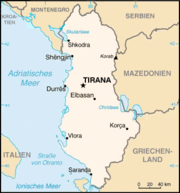- BY Free Movement

Court of Appeal judgment critical of expert commenting on refusal letter
THANKS FOR READING
Older content is locked

A great deal of time and effort goes into producing the information on Free Movement, become a member of Free Movement to get unlimited access to all articles, and much, much more
TAKE FREE MOVEMENT FURTHER
By becoming a member of Free Movement, you not only support the hard-work that goes into maintaining the website, but get access to premium features;
- Single login for personal use
- FREE downloads of Free Movement ebooks
- Access to all Free Movement blog content
- Access to all our online training materials
- Access to our busy forums
- Downloadable CPD certificates
In MF (Albania) v SSHD [2014] EWCA Civ 902, the Court of Appeal considered and upheld the criticisms of the appellant’s country expert made by the Upper Tribunal. In doing so, the Court appeared to disapprove of the practice of instructing expert witnesses to comment on particular findings made by decision-makers in reasons for refusal letters.
The appellant had claimed asylum as an unaccompanied minor (aged 15 years) on the basis that he was a potential target of an active blood feud in Albania. The appellant reported that his mother believed that the aggressor family was powerful and had widespread contacts, including within the government. The Secretary of State rejected his account but granted him discretionary leave to remain until he was aged 17½ years. The Appellant appealed to the First-tier Tribunal and, although he was found to be credible, his appeal was dismissed on the basis that the judge was not satisfied that the aggressor family would be able to trace the appellant in Tirana and so it would be safe for him to relocate there, where, if necessary, his mother could live with and support him.
In due course, the Upper Tribunal found an error of law in the judge’s assessment of the possibility of internal relocation and the ability of the appellant’s mother to join him in Tirana. It retained jurisdiction in order to remake these aspects of the determination. The appellant adduced as further evidence an expert report by an anthropologist with particular expertise of northern Albania. In her opinion, the appellant would be unable to remain anonymous living in Tirana, that the aggressor family would eventually find him and that it would be extremely hard for his mother to move to Tirana to look after him. In dismissing the appeal, the Upper Tribunal found these findings were ‘unjustifiably subjective, biased in favour of the appellant and without any evidential support’.
Before the Court of Appeal, the appellant argued that the Upper Tribunal had adopted the wrong approach to Dr Young’s evidence. The Court of Appeal rejected this argument:
16. The list of sources attached to Dr. Young’s report and the summary of her qualifications and experience make it clear that she is indeed a person with considerable experience of Albania and the incidence of blood feuds in that country. Her evidence therefore deserved to be given considerable weight insofar as it was based on her experience. It is perhaps unfortunate, however, that in this case she allowed herself to be drawn into expressing views on the very issues which the tribunal had to determine and to do so on the basis of her general knowledge and understanding of conditions in Albania generally rather than on specific information about the circumstances of the appellant’s case. It appears from section 5 of her report, in which she deals with matters specific to this case, that she may have been invited to comment on individual paragraphs of the respondent’s letter refusing the appellant’s claim, including at least one paragraph in which the decision-maker raised doubts about the account given by the appellant. In so doing Dr. Young allowed herself to be put in the position of an advocate, which inevitably undermined her objectivity.
On the face of it, this passage appears to constitute a general disapproval of the practice of instructing expert witnesses to comment on reasons for refusal letters. It is important, however, to contrast what happened in this case, whereby the expert was criticised for seeking to rebut the decision-maker’s findings without the knowledge to do so (she opined on the availability of internal relocation without the requisite knowledge of the aggressor family or the appellant), with the practice of an expert commenting on or rebutting findings made in the refusal letter by reference to objective, public domain evidence or matters that are within their own knowledge or experience. The latter must remain good practice.
Practitioners should note a further interesting aspect of the judgment: the Court of Appeal was critical of the failure to adduce a witness statement from the appellant’s mother, both in respect of the degree and extent of the influence wielded by the aggressor family (in circumstances where the appellant’s knowledge of these matters was based solely on what she had told him) and her capacity and willingness to relocate to Tirana to care for the appellant if he were to be internally relocated. The court held that the failure to produce such a statement meant that the appellant was not entitled to the benefit of paragraph 339L of the Immigration Rules.
While experience suggests that First-tier Tribunal judges rarely afford any particular weight to statements from out-of-country witnesses of fact (who are not called to give oral evidence or to be tendered for cross-examination), this case illustrates that it is sensible to make efforts to obtain and adduce statements from such witnesses where matters that are within their knowledge and experience are integral to the appellant’s case (and, further, that where such efforts cannot practically be made or are unsuccessful, it would be prudent to adduce evidence to this effect).
SHARE

